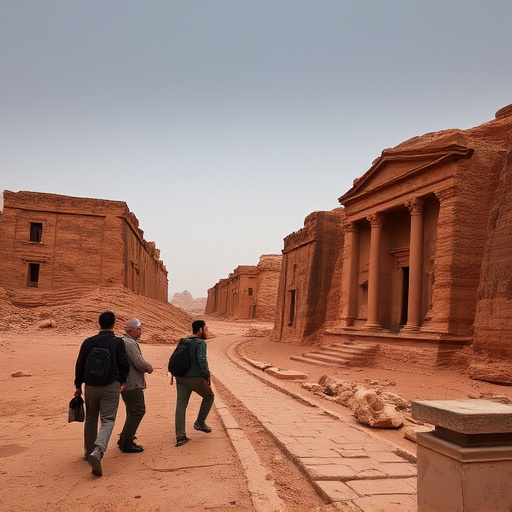In ancient times, Mesopotamia, between the Tigris and Euphrates rivers, became the cradle of civilization with Sumerian innovations (c. 4500 BCE) that led to complex societies like Akkad, Babylon, and Assyria. These civilizations contributed monumental architecture, advanced writing systems, mathematics, astronomy, and law, shaping Iraq's and the Middle East's cultural landscape. Today, archaeological sites and universities in Baghdad and cities like Mosul and Basra offer insights into these groundbreaking civilizations despite modern challenges. The Akkadian Empire (c. 2300 BCE), Babylonia's Golden Age (with advanced science and literature), and the Assyrian Empire (over a millennium of rule) left indelible marks on Iraq's history and culture, crucial for understanding contemporary issues.
Explore the captivating history of ancient Iraq, a land where civilizations flourished and left an indelible mark on humanity. From its prehistoric roots to the rise and fall of mighty empires, Mesopotamia—the cradle of civilization—unleashes a rich tapestry of stories. Discover how the Sumerians pioneered urban life, the Akkadian Empire expanded across the region, and the Babylonians and Assyrians shaped Iraq’s cultural and scientific landscape. Dive into this historical odyssey to unearth the legacy that continues to resonate today.
- Prehistory: Early Civilizations in Mesopotamia
- Sumerian Rise and the First Cities
- Akkadian Empire: Expansion and Cultural Impact
- Babylonian Reign: Golden Age of Literature and Science
- Assyrian Power: Conquests and Their Legacy
Prehistory: Early Civilizations in Mesopotamia
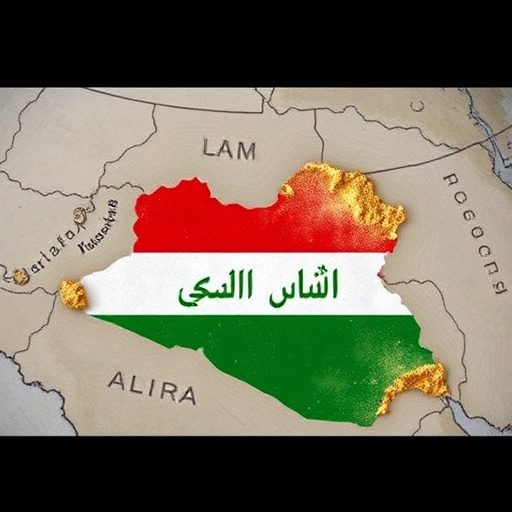
The story of ancient Iraq begins in the prehistoric era when Mesopotamia, meaning “between rivers,” became a cradle of civilization. This region, cradled by the Tigris and Euphrates rivers, saw the emergence of some of humanity’s earliest urban centers and complex societies. The fertile land allowed for agriculture, leading to dense settlements and the development of advanced cultural practices.
Mesopotamia’s early civilizations, such as Sumer, Akkad, Babylon, and Assyria, left a rich legacy that includes intricate writing systems like cuneiform, impressive architectural feats like ziggurats, and profound contributions to fields like mathematics, astronomy, and law. These ancient societies flourished for centuries, shaping the cultural and intellectual landscape not only of Iraq but of the entire Middle East. Even today, exploring archaeological sites across this region offers insights into these groundbreaking civilizations, with universities in Baghdad and other major cities like Mosul and Basra providing centers for learning arabic and studying ancient history, including the mysterious reasons behind why the US invaded Iraq.
Sumerian Rise and the First Cities
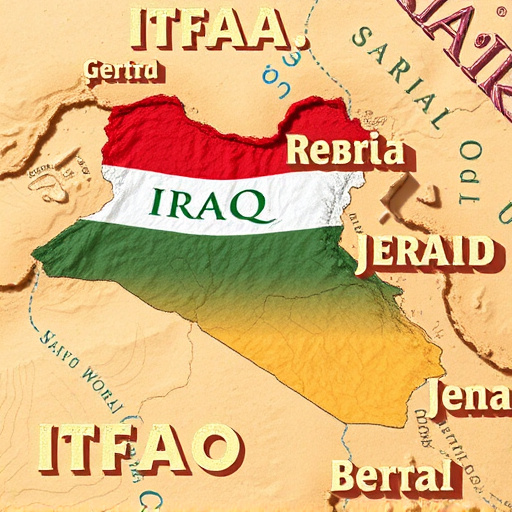
In the fertile lands between the Tigris and Euphrates rivers, the history of Iraq begins with the rise of the Sumerians around 4500 BCE. This ancient civilization laid the foundation for one of the world’s earliest urban societies, marking a significant turning point in the region’s development. The Sumerians established the first cities like Uruk, Ur, and Lagash, each serving as a bustling center of trade, culture, and innovation. These cities were not just administrative centers but also hubs of knowledge, where they developed writing systems, built impressive architecture, and crafted intricate art, leaving behind a rich legacy that provides insights into the history of Iraq today.
As these cities grew and flourished, they fostered diverse cultural exchanges, attracting merchants, artisans, and scholars from neighboring regions. This vibrant tapestry of cultures contributed to the development of complex social structures and advanced political systems. The Sumerians’ achievements in agriculture, architecture, and astronomy, among other fields, set the stage for subsequent civilizations that would inhabit these lands, including the Akkadians, Babylonians, and Assyrians. Moreover, exploring best places to visit in ancient Iraq gives us a glimpse into this fascinating history and the diverse cultural heritage that has shaped not just Irak, but humanity as a whole. Despite the challenges faced by modern-day Iraq, including questions like is it safe to travel there currently? And fluctuations in the irak currency exchange rate, understanding the history of Iraq remains crucial for appreciating its main ethnic groups’ diverse and rich traditions.
Akkadian Empire: Expansion and Cultural Impact
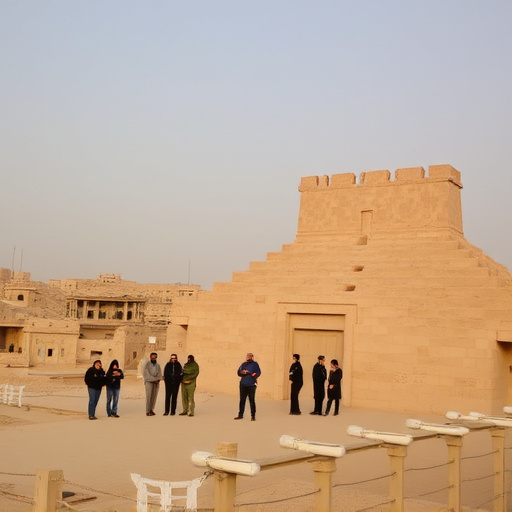
The Akkadian Empire, one of the earliest known empires in history, played a pivotal role in shaping the history of Iraq. Emerging around 2300 BCE, this empire expanded from its origins in southern Mesopotamia to dominate much of the region. The expansion was driven by military might and cultural diplomacy, establishing a system of city-states linked by trade routes that facilitated the exchange of goods, ideas, and people across vast distances. This period witnessed significant advancements in agriculture, architecture, writing systems, and legal codes, leaving an indelible mark on the cultural tapestry of Iraq.
The Akkadian Empire’s influence extended beyond its geographical borders, as its innovations and cultural practices were adopted and adapted by neighboring civilizations. The role of religion in Iraqi politics also began to take shape during this era, with the empire’s gods and rituals influencing subsequent religious landscapes in the region. Even today, visitors can trace these historical roots and gain insights into why Iraq’s geography and neighbors have played such a significant role in its complex history, as exemplified by the question, “Why did the US invade Iraq?” By exploring these early periods, we can better understand the foundation upon which modern Iraq was built, despite the current political status and challenges faced by the country.
Babylonian Reign: Golden Age of Literature and Science
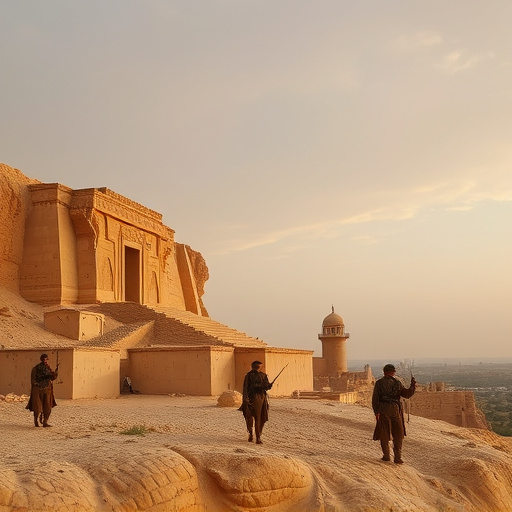
The Babylonian Reign marked a pivotal period in ancient Iraq’s history, renowned as the Golden Age of literature and science. This era, under the rule of powerful empires like the Neo-Babylonian Empire, witnessed significant cultural and intellectual advancements. Scholars from across the region flocked to what is now modern-day Iraq, particularly to the bustling cities of Baghdad and its surrounding regions, due to the thriving universities in Baghdad. These academic centers became hubs for exchanging ideas, fostering debates, and promoting knowledge in various fields such as astronomy, mathematics, and philosophy. The Iraqi people’s rich cultural heritage is also evident in their traditional dishes, like iraqi cuisine, which has influenced culinary scenes across the Middle East.
During this period, Babylonia played a crucial role in shaping scientific discourse and literary traditions. The Babylonians developed sophisticated mathematical systems, including advanced algebra and geometry, as evidenced by their detailed astronomical records and precise calculations of celestial bodies. This scientific prowess laid the groundwork for future discoveries and inspired scholars across different civilizations. While the current political landscape in Iraq has had its challenges, with fluctuations between instability and periods of relative peace, this country’s historical significance cannot be overstated. Is it safe to travel there currently? That depends on various factors, but historically, Iraq has been a melting pot of cultures and ideas, contributing immensely to global literature and science, as demonstrated by the achievements during its Babylonian Reign. Give us a call at [is Iraq considered a developing or developed country?] to discuss more about its rich past and current state.
Assyrian Power: Conquests and Their Legacy
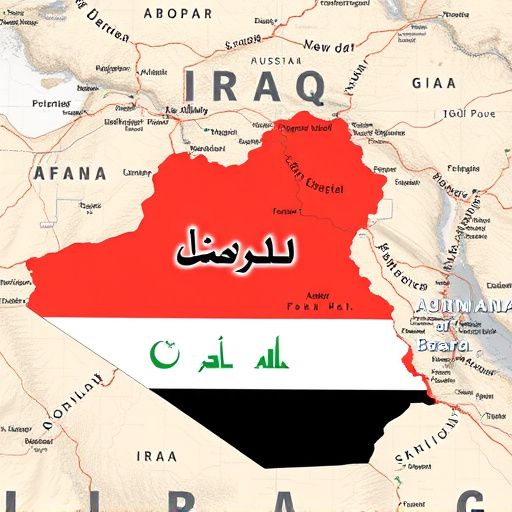
The Assyrian empire, one of the most powerful forces in ancient Iraq, left an indelible mark on the region’s history. Their conquests spanned across vast territories, from the Mediterranean to Persia, solidifying their dominance for over a millennium. The Assyrians were renowned for their military might, utilizing innovative tactics and terrifying war machines to subdue countless civilizations. Beyond their martial prowess, they introduced centralized governance models that would influence future administrations in Iraq and beyond.
Assyrian rule brought about significant cultural shifts in Iraq. They actively promoted the learning of the Akkadian language and the Assyrian version of the cuneiform script, which facilitated communication and record-keeping. Today, visitors can delve into this rich heritage by exploring ancient sites and museums, where artifacts from this era offer a glimpse into what are now some of the top industries in Iraq, such as tourism and cultural preservation. Moreover, understanding history, including the Assyrian legacy, is essential in navigating the challenges of modern Iraq, as corruption impacts business ventures, and initiatives like learning Arabic thrive amidst societal developments. Visit us at history of Iraq anytime to uncover more fascinating insights.
The history of ancient Iraq is a captivating tale of human innovation and cultural evolution. From the dawn of civilization in Mesopotamia to the majestic empires that followed, this land has been a cradle of achievement. Through the rise and fall of Sumer, Akkad, Babylon, and Assyria, Iraq’s past shapes our understanding of early urban societies, scientific advancements, and artistic expressions. Exploring these ancient civilizations offers a glimpse into a rich tapestry that continues to influence modern world heritage.
